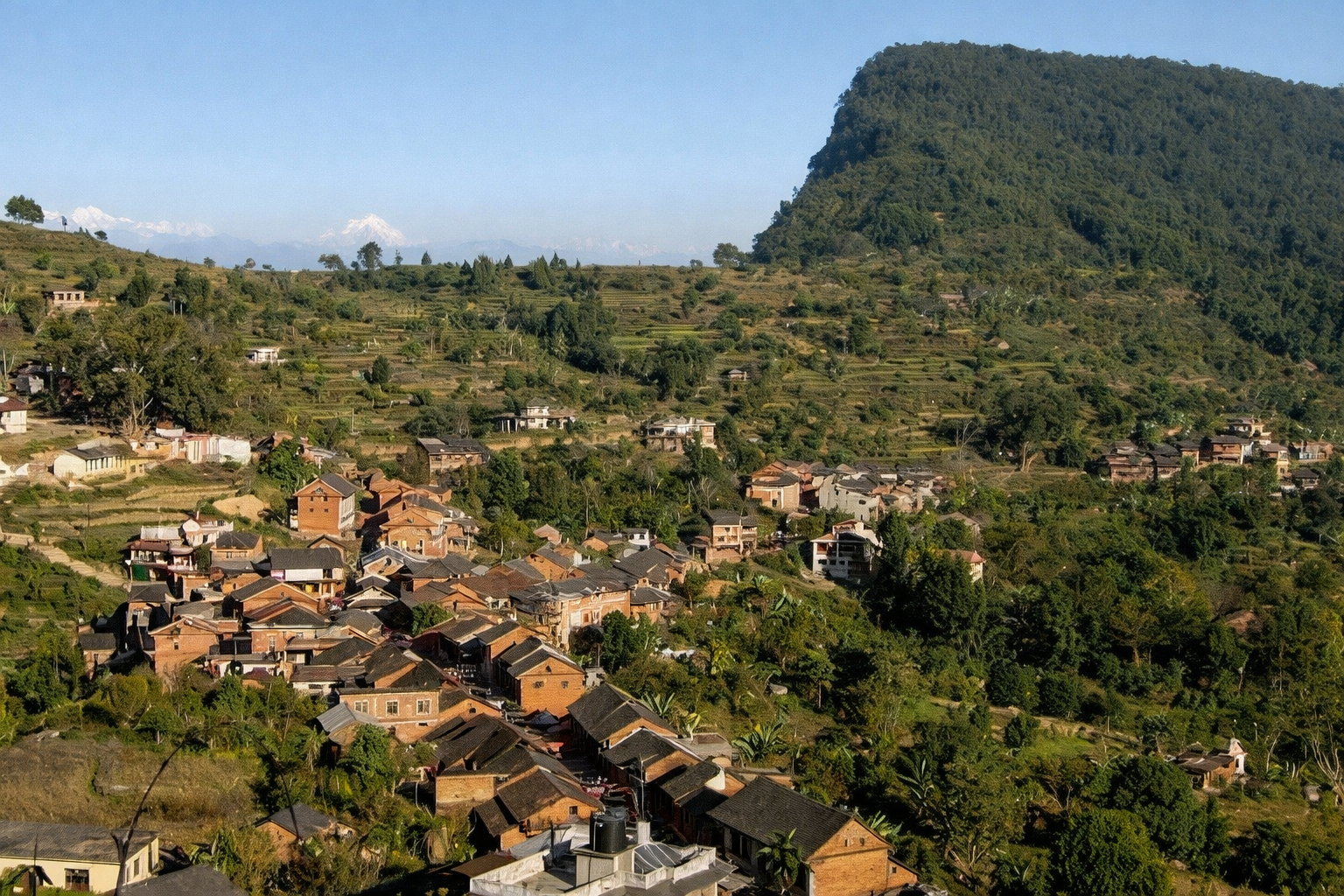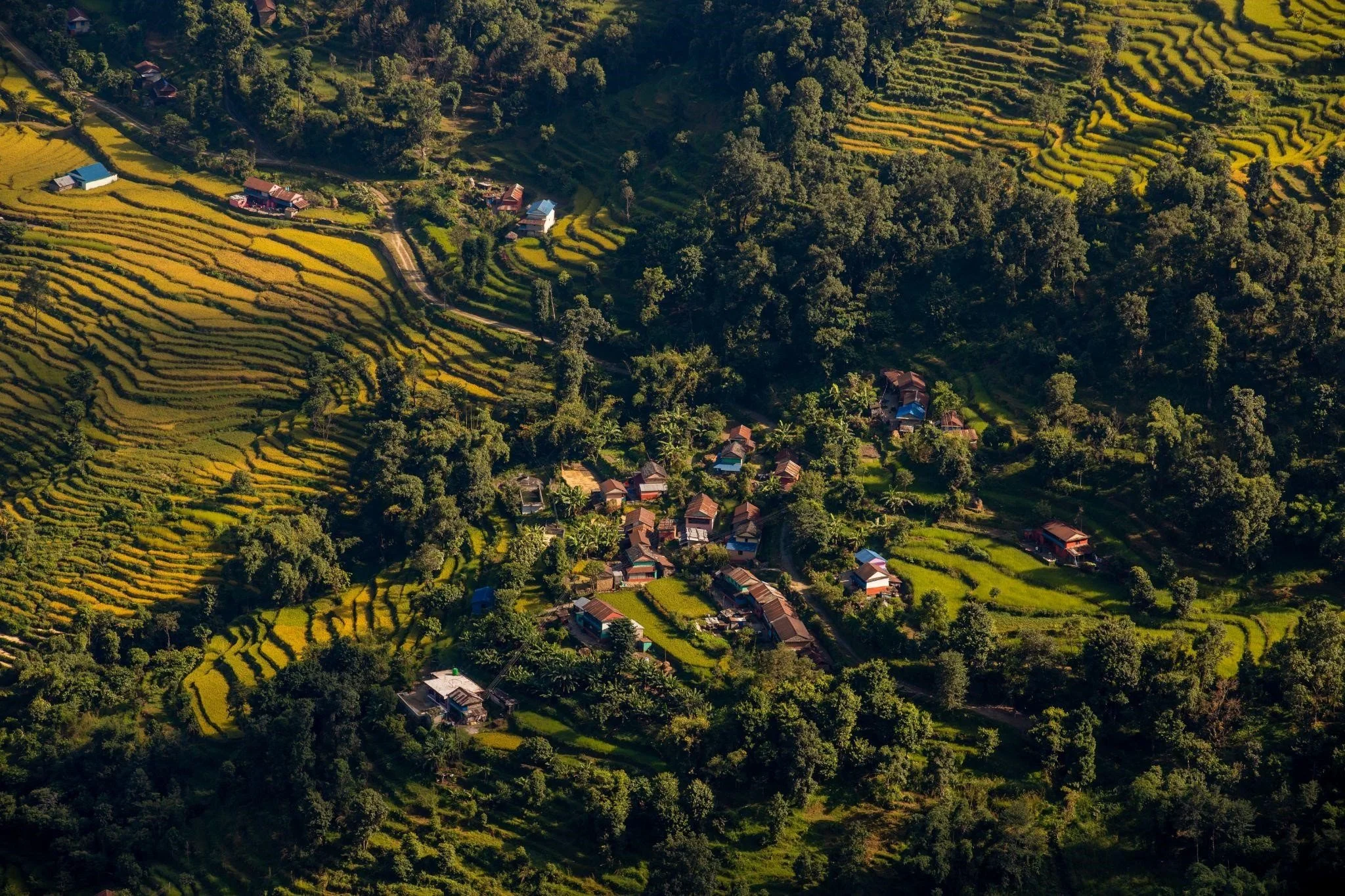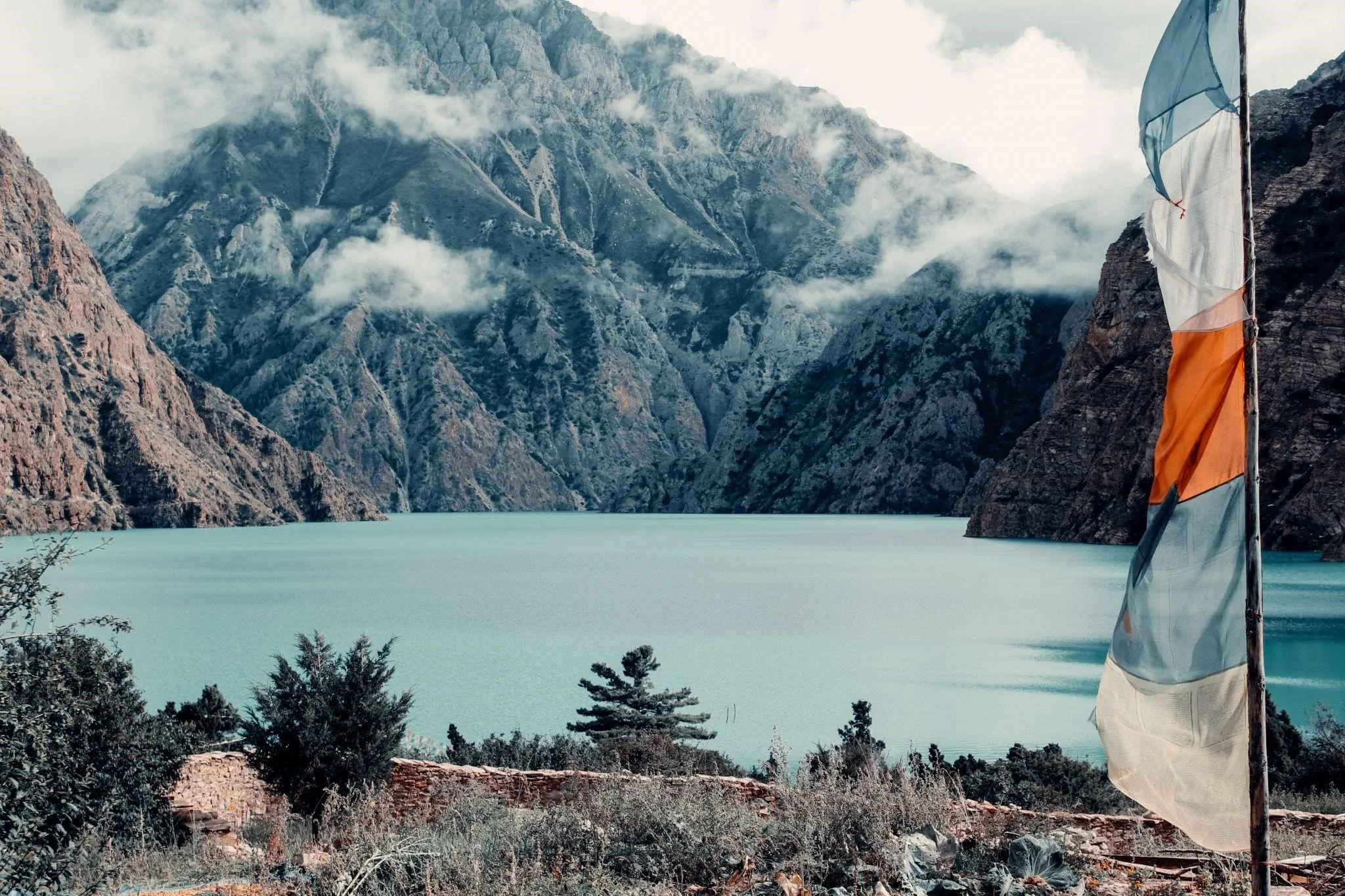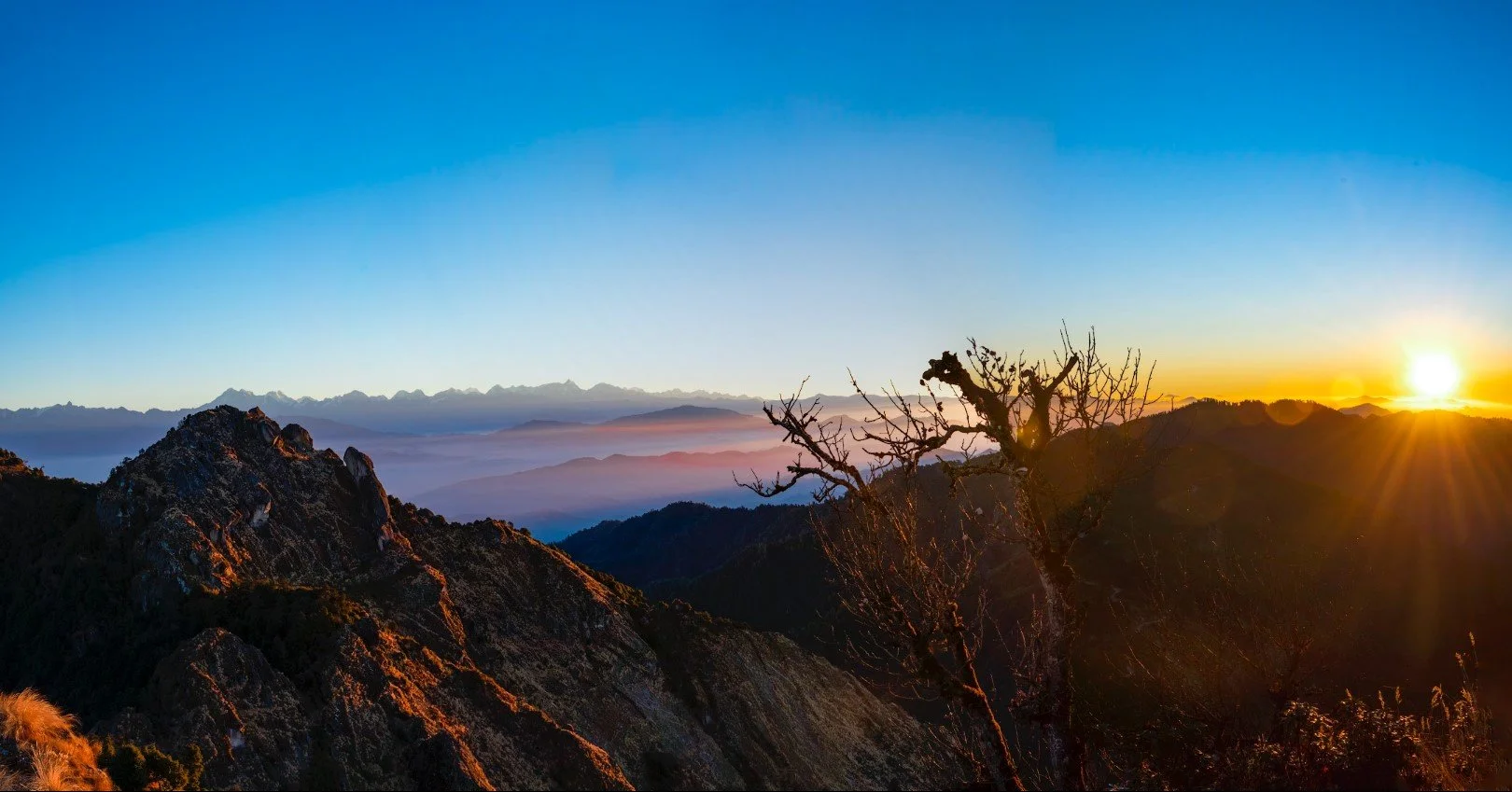Welcome to the mystical land of Muktinath, a place of profound spiritual significance and breathtaking natural beauty. Nestled in the Annapurna mountain range of Nepal, Muktinath holds a unique place in the hearts of both Hindu and Buddhist pilgrims. The word "Muktinath" is derived from two Sanskrit words: "Mukti," meaning liberation or salvation, and "Nath," meaning lord. Thus, Muktinath is considered a place of ultimate liberation, attracting devotees from all walks of life.
Muktinath's history dates back thousands of years, and it has been a revered pilgrimage site for Hindus and Buddhists since ancient times. For Hindus, it is one of the 108 sacred Vishnu temples known as "Divya Desams." The temple's main deity is Lord Vishnu, often depicted as "Muktinath" or "Chakrapani," holding a chakra (discus) in one hand and a conch shell in the other. Hindus believe that bathing in the holy waters of the Muktinath temple's 108 water spouts brings salvation and liberates them from the cycle of birth and rebirth.
For Buddhists, Muktinath is equally significant as it is believed to be one of the 24 tantric places, where Guru Padmasambhava, also known as Guru Rinpoche, meditated during his journey to Tibet. The surrounding area is dotted with ancient monasteries, stupas, and prayer flags, providing a serene atmosphere for meditation and reflection.
Day 1: Arrival in Kathmandu
Welcome to Kathmandu, the capital city of Nepal. Upon arrival, check-in at your hotel and take some rest after your journey. In the evening, explore the vibrant Thamel neighborhood, filled with shops, restaurants, and cultural delights.
Day 2: Kathmandu Sightseeing
Visit the UNESCO World Heritage Sites of Kathmandu, including Swayambhunath (Monkey Temple), Pashupatinath Temple, and Boudhanath Stupa. Immerse yourself in the rich spiritual and cultural heritage of Nepal.
Day 3: Kathmandu to Pokhara
Travel to Pokhara, a picturesque city surrounded by the Annapurna and Dhaulagiri mountain ranges. Enjoy a boat ride on Phewa Lake and soak in the breathtaking views of the Himalayas.
Day 4: Pokhara to Muktinath
Take a scenic flight from Pokhara to Jomsom, a beautiful town in the Mustang region.
Begin the trek from Jomsom to Muktinath, passing through Kagbeni, a charming village with Tibetan influences.
Day 5: Muktinath Temple
Reach Muktinath and visit the sacred Muktinath Temple. Explore the temple complex, including the 108 water spouts and the eternal flame that is said to burn without any natural fuel.
Day 6: Excursion to the Stone Buddha Statue
Embark on an excursion to the newly constructed 35-foot-tall Stone Buddha Statue in the region.Learn about the significance of this magnificent statue and enjoy the panoramic views of the surrounding landscapes.
Day 7: Return to Pokhara
Trek back to Jomsom and take a flight back to Pokhara. Spend the rest of the day at leisure, exploring Pokhara's markets or indulging in adventure activities like paragliding or zip-lining.
Day 8: Pokhara to Kathmandu
Bid farewell to Pokhara and return to Kathmandu. Use this day for any last-minute shopping or additional sightseeing in the capital.
Day 9: Departure
Your spiritual journey to Muktinath concludes today. Transfer to the airport for your onward journey with cherished memories of the Himalayan adventure.
Please note that this is a general itinerary, and it can be customized according to your preferences, time constraints, and physical fitness. Muktinath offers an enriching experience for spiritual seekers and nature lovers alike, leaving an everlasting impression on the hearts of those who visit this sacred destination.
Do’s and Don’ts for Muktinath Journey
Dos:
Respect the Local Culture: Muktinath is a sacred place for both Hindus and Buddhists. Show respect for the local culture and religious practices. Dress modestly when visiting temples and monasteries, and remove your shoes before entering any religious site.
Seek Blessings with Humility: Whether you are a religious pilgrim or a curious traveler, approach the Muktinath Temple and other religious sites with a humble and open heart. Seek blessings and participate in rituals with sincerity.
Carry Essential Items: While trekking to Muktinath, ensure you have proper trekking gear, including sturdy hiking shoes, warm clothing, a hat, sunglasses, and sunscreen. Stay hydrated and carry water bottles and snacks during the trek.
Follow Trekking Guidelines: If you are trekking to Muktinath, hire a registered guide and follow designated trekking trails. Inform your guide or hotel about your travel plans for safety purposes.
Experience Local Cuisine: Taste the local Nepali and Tibetan cuisine, as it is an essential part of experiencing the culture. Try momos, thukpa, dal bhat, and other traditional dishes.
Carry Cash: While major towns might have ATMs, it's advisable to carry enough cash for your entire trip, as remote areas like Muktinath might have limited access to banking facilities.
Be Environmentally Conscious: Respect the natural beauty of the region by not littering. Carry a reusable water bottle and avoid single-use plastics.
Don'ts:
Avoid Disrespectful Behavior: Refrain from any behavior that may be considered disrespectful to the local culture, traditions, or religious sites. Avoid touching religious artifacts or statues without permission.
Don't Disturb Wildlife: The region around Muktinath is ecologically fragile. Avoid disturbing wildlife or their natural habitats during your trek.
Don't Use Drones: Using drones in the region may not only disturb the serene atmosphere but may also violate local regulations.
Respect Photography Restrictions: Some monasteries and temples might have photography restrictions. Always ask for permission before taking photographs of people or religious sites.
Avoid Alcohol and Substance Abuse: Muktinath is a spiritual place, and it is best to avoid alcohol and substance abuse during your visit. Such behavior is not only disrespectful but may also be unsafe during treks.
Don't Engage in Public Display of Affection: Nepali culture tends to be conservative regarding public displays of affection. Show respect for local customs by keeping such displays private.
Don't Ignore Altitude Precautions: If you're trekking to Muktinath, be mindful of altitude sickness. Acclimatize properly and seek medical attention if you experience any symptoms.















